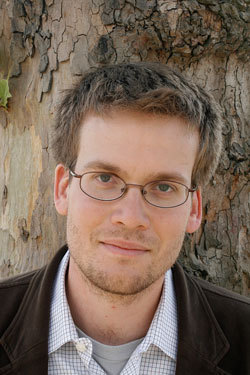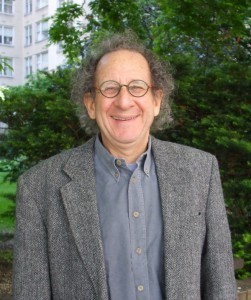R. Scott Boyer's Blog, page 15
July 16, 2014
Back Cover Text & Illustrated Cover
I am pleased to present to you here, for the first time anywhere, the currently slated back cover text for my next book, Bobby Ether and the Temple of Eternity.
Note – the cover illustration is also in the works. Currently, the design is in the sketch phase, but should be finished in color within a few weeks pending my approval (Sorry folks, I don’t illustrate well enough to create it myself!).
When it’s ready, I plan to do a cover release using my dear friend, Mollydee, over at Mismatched Bookends.
**Bobby Ether and the Temple of Eternity**
Picking up where Bobby Ether and the Academy left off, this supercharged sequel finds Bobby heading to Guatemala, where a group of missing children has been taken to a secret location in the heart of a deadly rainforest–La Muerte Verde.
Bobby and Jinx continue their exploration of the wondrous world of earth energies and spiritual connections as they work together against the nefarious forces of the Core to find and rescue their imprisoned companions.
New friends and powerful foes join the fray in this all-new action-packed adventure, entangling Bobby in a cryptic prophecy of life and death. The natives may be on his side, but mystic barriers, killer snakes, and raging rivers all bar his path. In the end, it’s up to Bobby and company to unravel the hidden secrets of an ancient Mayan temple—where they discover none other than the legendary Fountain of Youth!


July 15, 2014
Writing Short
One of the comments I get frequently when I tell people I’ve written two novels is that they can’t believe I wrote so much. To them, the act of writing an entire book undoubtedly dregs up painful memories of college essays and lengthy book reports. Ironically, I don’t dread the creation large content. In fact, it’s the exact opposite that occasionally gives me pause.
Sometimes writing short is harder than writing long. Never has this been truer for me than in writing query letters to agents, a project that many people claim is the most important piece of literature a writer ever produces (Why? Because, if it’s not good, it’s quite likely no one will ever see anything else he/she writes).
While I will soon face that onerous task as I look to find a home for my third book, I’m currently facing another form of short writing that ranks right up there in my opinion as the toughest in the biz––the back cover text. I realize that many (all?) big name authors don’t write their own copy material. Truth is that I paid someone to write mine initially for both my books, but I didn’t love what they did, and thus have spent hours writing/rewriting it myself.
To me, the back of a book is just as important, if not more important than the front. If the illustrated cover is responsible for hooking the reader, then it’s the back cover’s job to reel them in.
This is yet another example of how invaluable and essential the skill (and patience) of editing is to a writer. The shorter the content, the more each word must perform a role. Word choice is critical: ‘action-packed adventure’ or ‘supercharged sequel’? ‘Missing children’ or ‘missing refugees?’ Sometimes it feels like there’s no good answer. When that’s the case, head back to the tackle box, toss out your bait, and search for something fresh to put on the line.
Shortly following this post will be another post with the copytext I currently plan to use on the back of my newest book, Bobby Ether and the Temple of Eternity, due for release in a few months. I hope you enjoy it.


July 1, 2014
How Writing Taught Me to be a Better Friend
Like everyone else on this planet, I’m not perfect. One of my biggest flaws is that I tend to get so absorbed in my own life that I sometimes forget about those around me. Especially when I’m in a writer’s groove, hours, or even days, can go by without me thinking much about the other people in my life.
 That said, writing has taught me a great deal about nurturing friendships and developing new ones. After all, characters are just like real people in many ways. We all know that you have to invest in a personal relationship in order for it to grow. The art of character development benefits from similar dedication.
That said, writing has taught me a great deal about nurturing friendships and developing new ones. After all, characters are just like real people in many ways. We all know that you have to invest in a personal relationship in order for it to grow. The art of character development benefits from similar dedication.
The gradual process of discovering quirks like Jinx’s backward abilities, or Jacob’s fiery Irish temper, have led me to contemplate exactly how much time I dedicate to the real people in my life. Also, how much of that time is quality time spent talking or interacting, versus doing something passive like watching a movie?
 And then there’s the simple art of listening. We all have casual friends. You know, the person who you know their first name, but not their last. The ones who you see in the hall and say, “Hey, how you doing?” and pass by without waiting for the response.
And then there’s the simple art of listening. We all have casual friends. You know, the person who you know their first name, but not their last. The ones who you see in the hall and say, “Hey, how you doing?” and pass by without waiting for the response.
These casual friends are the literary equivalent of place-holder characters – undefined, unspecified in depth and detail – not because those details don’t exist, but because we haven’t taken the time to discover them.
This lesson has become more and more apparent to me ever since I began writing. Now in the process of finishing my third book, I’ve learned that I have to stop and wait for the answer if I ever want to truly get to know someone.
 Characters, like people, might initially respond with a casual “I’m fine, how are you?” but that doesn’t really tell you much about them, does it? That’s where persistence pays off. Follow up questions are key: “What have you been up to? By the way, what is it you do for a living? I don’t think I’ve ever asked you this before…”
Characters, like people, might initially respond with a casual “I’m fine, how are you?” but that doesn’t really tell you much about them, does it? That’s where persistence pays off. Follow up questions are key: “What have you been up to? By the way, what is it you do for a living? I don’t think I’ve ever asked you this before…”
These types of questions open the door for stronger friendships, and develop the same ties as writing exercises like character biographies and playing Stranger In the Room.
So the next time you’re looking to explore a character, ask yourself how you would improve a friendship. You may just find that enhancing one helps increase the other.


June 24, 2014
The Fault In Our Stars
For anyone who enjoyed The Fault In Our Stars and is a fan of John Green, here is a great interview with Stephen Colbert on The Colbert Report. I’m not sure I agree with Colbert’s quip about YA being ‘ghettoized’, but I can’t help but enjoy his comment that “…As far as [Colbert] can tell, a young adult novel is a regular novel that people actually read.” If only that were true for all YA novels…
http://thecolbertreport.cc.com/videos/07oysy/john-green
The Colbert Report
Get More: Daily Show Full Episodes,Indecision Political Humor,The Colbert Report on Facebook


June 23, 2014
The Stranger in the Room
Posted by Richard Ridley on CreateSpaceBlogger on May 7, 2014 5:03:22 AM
To truly know your characters, you have to spend time with them outside of the book – away from the plot and surroundings they are used to. You have to pluck them from their cozy storylines and throw them into an unfamiliar situation to understand what makes them tick.
One of the most common character-building exercises when I was taking creative writing classes was to imagine a setting where your character is a stranger in a room full of people. As he or she progresses into the scene, others will make judgments based on appearance and awkward interactions. How will your character respond? What will he or she say or do? How will your character judge the others in the room?
The most common setting for this exercise is a school lunchroom. Many of us have memories of entering the cafeteria for the first time and getting a lay of the land, both physically and socially. If you’ve ever been a new kid at school, this memory is likely especially etched into your brain. It borders on traumatizing for some, while others find it exhilarating. Where on the spectrum would your character fall?
It doesn’t have to be a school cafeteria. It can be the break room at work or a party or wherever. That’s your call, but to truly flesh out your character and dive deep into his or her psyche, make sure he or she is the only stranger in the room. The stress of being unknown is a great way to see your character from a new perspective.
-Richard
Richard Ridley is an award-winning author and paid CreateSpace contributor.


June 18, 2014
Being A Good Writer vs. Writing Well
A lot of people think being a writer simply means having good grammar – all the commas and colons in their proper places, with no dangling participles or improper conjugations. Honestly, I’m not the best when it comes to grammar – though, to be fair, the rules do tend to seep in over time. Still, in my estimation, the finer points of articulation don’t automatically equate to eloquent writing.
People who know the rules might make for excellent copyeditors, but that’s not the same as being a great writer. Being a great writer means knowing what to put on the page and what to leave out. It means knowing what angle to take to best describe a scene, or express a thought or action. Being a great writer is about being a storyteller.
What exactly does that mean? It’s about instinct and imagination – the stuff that writing classes can’t teach. In the absence of these intangible yet invaluable assets, even the most eloquent author ends up with what has been described as “an eloquently penned ‘So What?’”
Let’s be honest, not everyone has a good instinct for how to tell a story. Writing courses across the country are filled with students who know how to write, but don’t know what to write. And isn’t that the key? It’s much easier to find a copyeditor than it is to find a truly unique and creative story.
So how does someone figure out what to write? To me, this brings up the age-old question of nature versus nurture. Some things can be taught, while others are perhaps simply a matter of how you were born – your storyteller DNA, so to speak.
Of course, there is also the middle ground – a mix between cultivated and inherited traits. Perhaps some of writing is innate talent, but there are also tools that can help improve both instinct and imagination, regardless of the starting point.
First and foremost, practice is key. Like everything else in life, the more you write, the better you’ll to get at it. The more you try and tell different stories, the more you will learn how to tell different stories.
Distance and a keen eye are also helpful. I firmly believe that setting aside your work for a while and revisiting it later helps you see your own flaws with greater clarity. While a keen eye for good writing is, again, something that can’t always be taught, there are ways to work on that as well. One of the basic mantras of a good writer is to read more than you write. Reading with a critical eye helps you discern good writing from bad, which in turn will help you evaluate your own prose.
Lastly – Try a different angle. As a fun exercise, I like to imagine different approaches to various scenes. The more variations I create, the easier it is to see the scene for what it needs to be, and to pick the one that delivers this vision the best. Write the scene from a different character’s POV. Change the details around. Add characters. Remove characters. Play with them in your head like action figures or Barbie dolls until things align properly to tell the story you want to tell.
Above all else, remember this simple mantra: writers write. Don’t be discouraged if your grammar is poor, or you suffer from a lack of ideas. If writing captures your heart, then express it. Let it out and enjoy it, no matter what the form – good, bad, or downright awful. Regardless of where you start, I promise you this: the more you write, the better you will become.


Being A Writers vs. Writing Well
A lot of people think being a writer simply means having good grammar – all the commas and colons in their proper places, with no dangling participles or improper conjugations. Honestly, I’m not the best when it comes to grammar – though, to be fair, the rules do tend to seep in over time. Still, in my estimation, the finer points of articulation don’t automatically equate to eloquent writing.
People who know the rules might make for excellent copyeditors, but that’s not the same as being a great writer. Being a great writer means knowing what to put on the page and what to leave out. It means knowing what angle to take to best describe a scene, or express a thought or action. Being a great writer is about being a storyteller.
What exactly does that mean? It’s about instinct and imagination – the stuff that writing classes can’t teach. In the absence of these intangible yet invaluable assets, even the most eloquent author ends up with what has been described as “an eloquently penned ‘So What?’”
Let’s be honest, not everyone has a good instinct for how to tell a story. Writing courses across the country are filled with students who know how to write, but don’t know what to write. And isn’t that the key? It’s much easier to find a copyeditor than it is to find a truly unique and creative story.
So how does someone figure out what to write? To me, this brings up the age-old question of nature versus nurture. Some things can be taught, while others are perhaps simply a matter of how you were born – your storyteller DNA, so to speak.
Of course, there is also the middle ground – a mix between cultivated and inherited traits. Perhaps some of writing is innate talent, but there are also tools that can help improve both instinct and imagination, regardless of the starting point.
First and foremost, practice is key. Like everything else in life, the more you write, the better you’ll to get at it. The more you try and tell different stories, the more you will learn how to tell different stories.
Distance and a keen eye are also helpful. I firmly believe that setting aside your work for a while and revisiting it later helps you see your own flaws with greater clarity. While a keen eye for good writing is, again, something that can’t always be taught, there are ways to work on that as well. One of the basic mantras of a good writer is to read more than you write. Reading with a critical eye helps you discern good writing from bad, which in turn will help you evaluate your own prose.
Lastly – Try a different angle. As a fun exercise, I like to imagine different approaches to various scenes. The more variations I create, the easier it is to see the scene for what it needs to be, and to pick the one that delivers this vision the best. Write the scene from a different character’s POV. Change the details around. Add characters. Remove characters. Play with them in your head like action figures or Barbie dolls until things align properly to tell the story you want to tell.
Above all else, remember this simple mantra: writers write. Don’t be discouraged if your grammar is poor, or you suffer from a lack of ideas. If writing captures your heart, then express it. Let it out and enjoy it, no matter what the form – good, bad, or downright awful. Regardless of where you start, I promise you this: the more you write, the better you will become.


June 13, 2014
Butch and Eddy
In honor of both Father’s Day this Sunday, as well as Memorial Day just a short time ago, I want to share with my readers these two wonderful short stories. It’s true: how we raise our children really can make a difference in this world.
Butch and Eddy
by: Author Unknown, Source Unknown
World War II produced many heroes. One such man was Butch O’Hare. He was a fighter pilot assigned to an aircraft carrier in the SouthPacific.
One day his entire squadron was sent on a mission. After he was airborne, he looked at his fuel gauge and realized that someone had forgotten to top off his fuel tank. He would not have enough fuel to complete his mission and get back to his ship. His flight leader told him to return to the carrier.
Reluctantly he dropped out of formation and headed back to the fleet. As he was returning to the mothership, he saw something that turned his blood cold. A squadron of Japanese Zeroes were speeding their way toward the American fleet. The American fighters were gone on a sortie and the fleet was all but defenseless. He couldn’t reach his squadron and bring them back in time to save the fleet. Nor, could he warn the fleet of the approaching danger.
There was only one thing to do. He must somehow divert them from the fleet. Laying aside all thoughts of personal safety, he dove into the formation of Japanese planes. Wing-mounted 50 caliber’s blazed as he charged in, attacking one surprised enemy plane and then another. Butch weaved in and out of the now broken formation and fired at as many planes as possible until finally all his ammunition was spent.
Undaunted, he continued the assault. He dove at the Zeroes, trying to at least clip off a wing or tail, in hopes of damaging as many enemy planes as possible and rendering them unfit to fly. He was desperate to do anything he could to keep them from reaching the American ships. Finally, the exasperated Japanese squadron took off in another direction.
Deeply relieved, Butch O’Hare and his tattered fighter limped back to the carrier. Upon arrival he reported in and related the event surrounding his return. The film from the camera mounted on his plane told the tale. It showed the extent of Butch’s daring attempt to protect his fleet. He was recognized as a hero and given one of the nation’s highest military honors.
And today, O’Hare Airport in Chicago is named in tribute to the courage of this great man.
Story number two:
Some years earlier there was a man in Chicago called Easy Eddie. At that time, Al Capone virtually owned the city. Capone wasn’t famous for anything heroic. His exploits were anything but praiseworthy. He was, however, notorious for enmeshing the city of Chicago in everything from bootlegged booze and prostitution to murder.
Easy Eddie was Capone’s lawyer and for a good reason. He was very good! In fact, his skill at legal maneuvering kept Big Al out of jail for a long time. To show his appreciation, Capone paid him very well. Not only was the money big; Eddie got special dividends. For instance, he and his family occupied a fenced-in mansion with live-in help and all of the conveniences of the day. The estate was so large that it filled an entire Chicago city block. Yes, Eddie lived the high life of the Chicago mob and gave little consideration to the atrocity that went on around him.
Eddy did have one soft spot, however. He had a son that he loved dearly. Eddy saw to it that his young son had the best of everything; clothes, cars, and a good education. Nothing was withheld. Price was no object. And, despite his involvement with organized crime, Eddie even tried to teach him right from wrong. Yes, Eddie tried to teach his son to rise above his own sordid life. He wanted him to be a better man than he was. Yet, with all his wealth and influence, there were two things that Eddie couldn’t give his son. Two things that Eddie sacrificed to the Capone mob that he could not pass on to his beloved son: a good name and a good example.
One day, Easy Eddie reached a difficult decision. Offering his son a good name was far more important than all the riches he could lavish on him. He had to rectify all the wrong that he had done.
He would go to the authorities and tell the truth about Scar-face Al Capone. He would try to clean up his tarnished name and offer his son some semblance of integrity. To do this he must testify against The Mob, and he knew that the cost would be great. But more than anything, he wanted to be an example to his son. He wanted to do his best to make restoration and hopefully have a good name to leave his son.
So, he testified. Within the year, Easy Eddie’s life ended in a blaze of gunfire on a lonely Chicago street. He had given his son the greatest gift he had to offer at the greatest price he would ever pay.
I know what you’re thinking. What do these two stories have to do with one another? Well, you see, Butch O’Hare was Easy Eddie’s son.


June 4, 2014
Is Amazon the Enemy?
As a first time novelist, Amazon gave me by far the best option to feel like a real author when it came to releasing my book. Their subsidiary, CreateSpace, helped create the physical book. Their KDP program allowed me access to the biggest venue for ebook sales. And then, of course, there is having the book for sale on Amazon’s website.
What author (or manufacturer of any product for that matter) doesn’t want their product on Amazon.com? The inverse is undoubtedly cause for concern: You can’t possibly be optimizing sales if you’re not on Amazon.
Amazon’s allure is undeniable, their tremendous reach, unmistakable. But does it come with too high a price?
Following is a great article about Amazon and their impact on the book publishing industry. Clearly, a lot of people feel trapped about partnering with Amazon––damned if you do, damned if you don’t.
I found this article in my weekly newsletter from shelf-awareness.com.
Amazon vs. Hachette: Authors, Times, Shatzkin
 John Green, whose publisher is Penguin Random House, has joined the chorus of authors protesting Amazon’s treatment of Hachette Group. A frequent critic of bullying, he told the AP: “What’s ultimately at stake is whether Amazon is going to be able to freely and permanently bully publishers into eventual nonexistence….
John Green, whose publisher is Penguin Random House, has joined the chorus of authors protesting Amazon’s treatment of Hachette Group. A frequent critic of bullying, he told the AP: “What’s ultimately at stake is whether Amazon is going to be able to freely and permanently bully publishers into eventual nonexistence….
“The breadth of American literature and the quality of American literature is in no small part due to the work that publishers do, and it’s very unfortunate, in my opinion, to see Amazon refuse to acknowledge the importance of that partnership.”
—
In a piece in the Sunday Times of London called “Stay Silent and Soon Amazon Will Be Telling the World What It Can Read,” historian and author Amanda Foreman(Georgiana, The Duchess, A World on Fire, etc.) compared Amazon’s power with “one of the greatest monopolies in history… the medieval Catholic Church. Its religious and temporal power was absolute until confronted by an even more potent rival: the printed book. Today, print is once more at the centre of a cultural revolution. Only this time it is not the challenger to a global monopoly but its most successful weapon….
 “What the public does not know is that the real fight is about kickbacks. How can Amazon make up for the fact that it sells almost all its books at a loss?
“What the public does not know is that the real fight is about kickbacks. How can Amazon make up for the fact that it sells almost all its books at a loss?
“The money has to come from somewhere–and it does so in the form of ‘fees’ that the publishers must pay to have their books listed. It is the fees, not consumer choice, that drive nearly every aspect of how a book is displayed and recommended on Amazon.
“In most economic and political situations this practice is called ‘pay to play’ and is banned….
“Amazon’s real attitude to the book industry was revealed in its public statement last Tuesday. This referred to books as ‘demand-weighted units.’ They are not. A customer looking for Tolstoy’s War and Peace won’t buy Talshoy’s Peace and Warbecause it is cheaper. Despite what Amazon would like us to believe, Tolstoy’s book has value, the other simply a price.”
Foreman called for market regulators to break up Amazon as they did with banking monopolies, for the big five publishers to stand firm against Amazon, for customers to take Amazon’s advice and buy books from independent outlets and for writers to speak out and “stand alongside our fellow authors at Hachette and Bonnier. Their fate is our fate; we can help them win or watch them prepare the way for the destruction of all of us.”
—
 A New York Times editorial today revisits the basics of the Amazon-Hachette battle, saying that “this dispute appears to be the kind of hard-nosed negotiations that always take place when distributors and producers try to figure out how to split the profits from a relatively new business, in this case e-books….
A New York Times editorial today revisits the basics of the Amazon-Hachette battle, saying that “this dispute appears to be the kind of hard-nosed negotiations that always take place when distributors and producers try to figure out how to split the profits from a relatively new business, in this case e-books….
“But when a company dominates the sale of certain products as Amazon does with books, it has the power to distort the market for its own benefit and possibly in violation of antitrust laws…. There may be grounds to investigate Amazon if its squeezing of Hachette drags on for months or if it engages in similar actions against other publishers.”
The editorial ends with an unlikely recommendation to Amazon: “It would be best if Amazon simply dropped its bullying tactics and spent its energy reaching agreements with Hachette and Bonnier. The longer this dispute drags on, the more likely it is that some readers will reconsider their relationship with Amazon and start buying books from other retailers. That would surely damage Amazon’s goal of becoming the seller of everything to everyone.”
—
In response to the Amazon-Hachette battle, the Washington Independent Review of Books, which has long been an Amazon affiliate, will no longer run Amazon ads on the Review‘s homepage or link the books it reviews to Amazon.
“Although we appreciate Amazon for all the things it does well–such as providing a vibrant marketplace for out-of-print books–we can’t abide its strong-arming of the Hachette Book Group. Aggressive business practices are one thing; coercion is another….
“Instead, we encourage readers to purchase books from their local booksellers, from Barnes & Noble, and from independent bookstores such as Oregon-based Powell’s or Washington, D.C.-based Politics and Prose, both of which are also affiliates of ours.
“It may be a small gesture, but it’s an important one. And while it will surely cost us revenue, it’s the right thing to do.”
—
 On his Idealog blog, Mike Shatzkin offered some background to the battle over e-book pricing and explored “some critical points that I think have not been made as often or as emphatically as their importance warrants.” These include:
On his Idealog blog, Mike Shatzkin offered some background to the battle over e-book pricing and explored “some critical points that I think have not been made as often or as emphatically as their importance warrants.” These include:
Amazon’s business is so big and doesn’t depend on books anymore, making competition with it “very hard, perhaps impossible, for somebody retailing books alone to compete with them.”
Amazon “pretty much single-handledly created” the e-book market and is “just about every trade publisher’s largest and most profitable account.” Amazon has created “a distribution and revenue-source imbalance that publishing has never had before…
“In some ways, the die for a reshaped publishing business was cast when Jeff Bezos had the vision to get Wall Street to finance an ‘everything store’ (hat tip to author Brad Stone) built on a foundation of book-buying customers. Amazon has plenty of internal justification for believing that their investment and risk-taking has been a huge benefit to publishers for most of the 20 years of their existence. But that doesn’t change the fact that an imbalance exists that will feed on itself. Amazon will grow at the expense of all other book and e-book retailers and Penguin Random House will grow at the expense of all other trade publishers. Smaller publishers have already felt the pain and self-published authors will in the future. That’s what will happen naturally and organically from now on, unless a stronger force intervenes, and on the right side instead of the wrong side the next time.”


June 3, 2014
How (Not) To Edit A Book
 Following is an article by Brian Grove about the process of editing. Given that I just finished editing my second book, Bobby Ether and the Temple of Eternity, two days ago, I can relate to what he has to say on the subject. I definitely agree that some initial edits in the moment are appropriate, but that you should stick with your gut and move on quickly. I also really like his comments about not coming back to edit again until they’re no longer your words (“Only edit what you couldn’t re-write from memory”).
Following is an article by Brian Grove about the process of editing. Given that I just finished editing my second book, Bobby Ether and the Temple of Eternity, two days ago, I can relate to what he has to say on the subject. I definitely agree that some initial edits in the moment are appropriate, but that you should stick with your gut and move on quickly. I also really like his comments about not coming back to edit again until they’re no longer your words (“Only edit what you couldn’t re-write from memory”).
I also agree that you should have a trusted reader with a keen eye, who can help identify trouble issues. No matter how good you are, two sets of eyes are always better than one. Here is Brian’s post:
How (Not) To Edit A Book
I hate editing. I hate it because I’m obsessed with it. Editing is a writers disease, and it can be debilitating. Take the title of this article for example; How (Not) To Edit A Book or How To (Not) Edit A Book? If you get my point.
I used to wake up every morning, read what I’d written the day before and think ‘this as awful,’ and start chopping it about. It usually didn’t end there either. I’d then start editing what I’d just edited, and the pointless cycle would begin. That’s the trouble with computers, they make it so easy to do.
It’s an absolute truism that you can edit the soul out of a book. Some authors, a couple of which I know, don’t have this problem. They write exuding a fluid confidence, and I’m a bit jealous of them.
Prior to publication I was advised to prepare for the possibility I may not recognize some of my book after it had been through the editorial process. But my publishers hardly changed anything. Rather than a ringing endorsement of my editing skills they were probably more concerned editing might alter the context of important facts, being a non-fiction book. Glancing over it now, as I very rarely do, I still have ’that sentence isn’t right’ moments, and remember versions I should have left in.
The solution for over-editing is to develop a system to deal with it. What I did, quite late in the process I admit, was to impose restrictions on myself. So here is my personal 4 point plan for effective editing of a book.
▪ Do not edit any section of your book until you have left it for some time and put it out of your mind. Only edit what you couldn’t re-write from memory.
▪ The first edit: As soon as you’ve read a paragraph, make an instant decision, change a word or two, or re-arrange a sentence, and stick to it. Give yourself one opportunity only. The default position should be to leave the work alone.
▪ The second edit. The second edit should only happen some weeks after you’ve completed a piece. You should be looking at large sections of your work, perhaps even an entire chapter. Read the work as you would read any book and make quick notes. Make the necessary changes based on those notes alone.
▪ The third and final edit. This should be a combination of three things. Firstly, give your work to someone you trust to give you an honest opinion. Based on that person’s advice, have one more read through the entire work and tidy up any loose ends. The final element will be your publishers. They will inevitably change your work at least to some degree. Don’t take this personally, it can simply be for production reasons.
▪ A fourth solution is to employ a professional editor. I recommend Ben Smith at http://www.englishauthorservices.com. He is a retired university lecturer who offers a full range of editing services and, also, a review service for your manuscript. I have received excellent feedback about his work from clients.
I’m now going to leave this article for a while before editing. I’ll give it one final edit prior to publication. I am learning, slowly.





